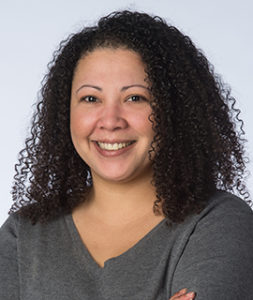
Home » Kingfisher's clinical trials tackle Alzheimer's treatments
Kingfisher's clinical trials tackle Alzheimer's treatments
Two medications aim to reduce brain plaque, improve cognitive function

Dr. David Greeley, owner of Spokane-based Kingfisher Cooperative, is seeking patients for two clinical trials to help treat Alzheimer's disease.
| Erica BullockFebruary 29, 2024
Spokane-based clinical research company Kingfisher Cooperative LLC is searching for research trial participants for two ongoing studies addressing medical treatments for early Alzheimer's disease.
Dr. David Greeley, neurologist and CEO of Kingfisher, says he's looking to expand the demographics of the volunteers to include more people of color, economic status, and rural residents for two separate studies testing the safety and efficacy of the medications.
Both drugs aim to reduce brain plaque and improve cognitive function and performance for older adults with early signs of Alzheimer's disease.
"It's a serious condition, and it requires serious treatment early on," says Greeley. "I'm hoping to get more people interested in coming in to see us when they're having subtle deficits."
Polaris-AD is a phase 3 clinical trial underway for the drug AR1001, also called mirodenafil, an oral medication manufactured by South Korean biotechnology company AriBio Co. Ltd.
Greeley, who also is chief medical officer for AriBio, says Kingfisher is one of the selected clinics administering the drug to a handful of patients at the Spokane clinic.
"Polaris was designed to be taken by people from a diverse population," says Greeley. "We're hoping to recreate the melting pot of America in our study and have more diversity ... so that when we get the approval, we can actually tell everybody that it's for everybody."
The second trial, Celia, is in phase 2 and sponsored by Cambridge, Massachusetts-based biotechnology research company Biogen Inc., which manufactures BIIB080, an intravenous antisense oligonucleotide medication.
"The Biogen trial is more invasive, but potentially more potent in that it's delivering a drug right to the spinal fluid by doing four lumbar punctures a year," explains Greeley.
Clinical research studies go through three to four phases of trials. Phase 1 trials study the safety and dosage of a medication or device for several months for 20 to 100 volunteers, according to the Food and Drug Administration.
Phase 2 expands the participants to include several hundred people who will be studied for up to two years so researchers can understand the efficacy and side effects of a drug.
Phase 3 requires 300 to 3,000 volunteers to be studied from one to four years to understand the effectiveness and to monitor people for adverse reactions. Phase 4 trials are conducted after FDA approval when the drug is on the market.
"The majority of our work that we've done has been in phase 3 trials," says Greeley.
Other than funding, recruiting and retaining diverse trial participants is a top challenge in the development of next-generation Alzheimer's treatments, according to the Alzheimer's Association.
Recruiting diverse participants has been a challenge for both global studies.
"We don't have a large diverse population in Spokane, but one population we're trying to reach out to more are Native Americans and Indigenous (people). Health care hasn't been equal in this country for years, at least in research, and the only way we can start is to study people from diverse populations," says Greeley.
Volunteers don't need to have health insurance to participate, and the drugs are administered for free, he says. Additionally, patients are compensated for travel costs and visits to Kingfisher's offices at 1520 W. Third, located in the concrete pyramid-shaped building on the west side of downtown, in the former headquarters for Global Credit Union.
Both the Celia and Polaris-AD studies only have 10% to 20% of the 1,100 people needed for each trial, and Greeley says he'd like to boost participation in the Spokane area to about 55 people. However, he says, "It's not easy to find people who are interested in having four lumbar punctures a year."
Greeley has been practicing medicine and conducting clinical research for over 30 years. He graduated from the University of Washington School of Medicine in 1989, followed by a neurology internship and residency at the University of Wisconsin, in Madison, Wisconsin, and a post-residency position at the National Hospital for Neurology and Neurosurgery in London.
He founded his private practice, Northwest Neurological PLLC, in 1999, where he has treated patients with depression, migraines, movement disorders, and memory loss for 25 years.
Greeley launched Kingfisher in 2018 as a separate entity for conducting clinical research and to provide neurological health care services for patients without insurance coverage.
"Through Northwest Neurological, we can see people for neuro and psych services, if their insurance covers it," Greeley says, adding that if a patient's insurance won't cover the treatment at Northwest Neurological, then they could seek treatment through Kingfisher.
Kingfisher is separated from Northwest Neurological so people understand, "they're stepping into a new environment," he says.
More than 90% of Kingfisher's revenue is generated through the research trials sponsored by pharmaceutical companies. The remainder from private-pay patients.
Greeley has been involved in about 100 clinical trials and has seen over 30,000 patients over his career, averaging about 1,000 patients a year, he says.
In addition to sponsored studies, Kingfisher conducts independent medical research and is working to secure a partnership with Washington State University and the University of Washington on nonpharmaceutical studies.
Kingfisher is one of a handful of Greeley's companies that share 20 employees at the neurological center where Northwest Neurological is headquartered.
The nonprofit Spokane Neuro Foundation that Greeley helped form also operates from the facility with a mission to help address financial burdens for some patients who can’t afford the newest medications, he says.
"If we're going to get these tests done, we need people to embrace it," says Greeley, "But it's tough to get people in, even for free health care."
Latest News Special Report Health Care
Related Articles





![Brad head shot[1] web](https://www.spokanejournal.com/ext/resources/2025/03/10/thumb/Brad-Head-Shot[1]_web.jpg?1741642753)